
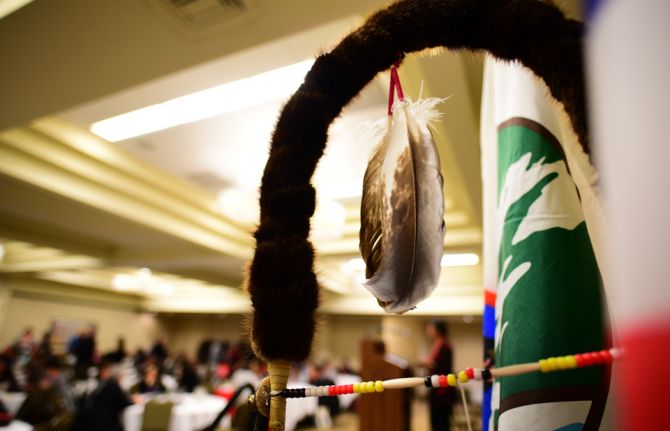
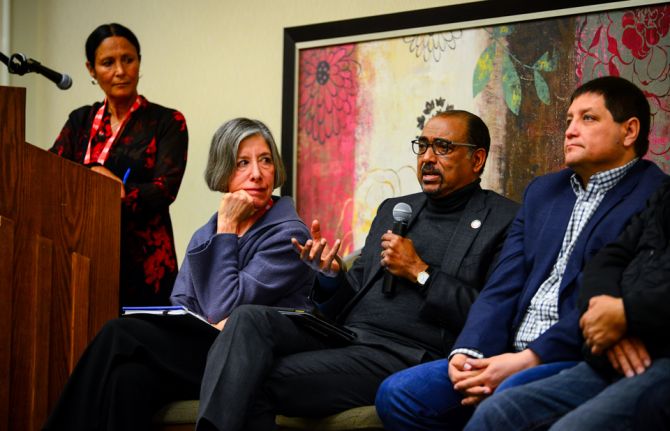
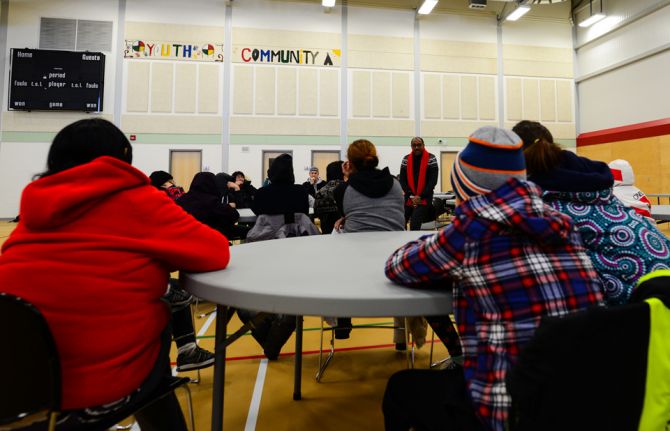
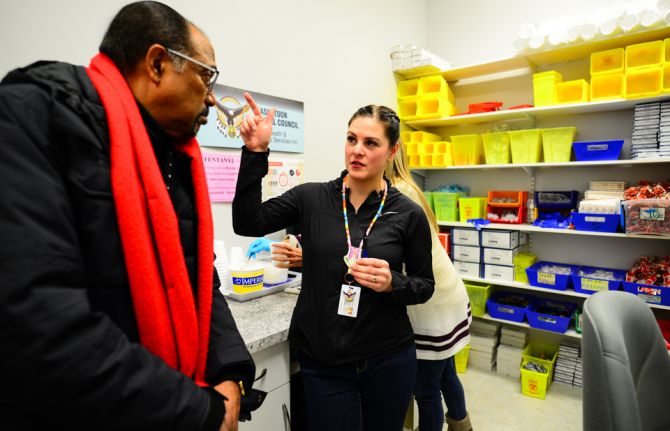
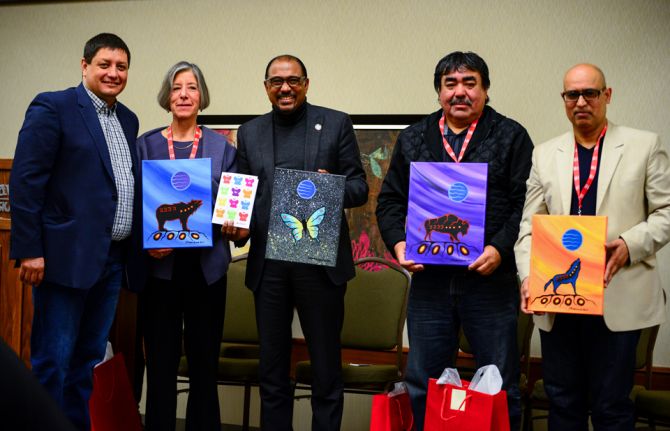
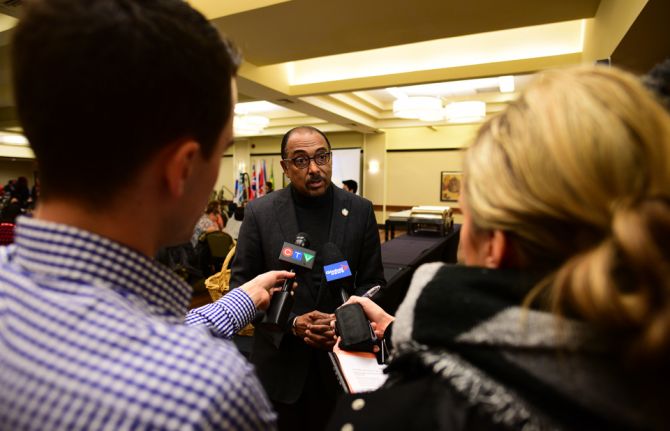
Update
A call for an HIV catch-up plan for the First Nations in Canada
27 February 2018
27 February 2018 27 February 2018Indigenous peoples the world over face exclusion and discrimination. High rates of addiction and mental illness increase their marginalization.
Among First Nations young people in Saskatchewan, Canada, suicide rates are five to seven times higher than among the general population. First Nations young people are more likely to end up in jail than to graduate from high school. Tuberculosis and HIV disproportionally affect First Nations peoples in Canada.
Reaching fragile communities such as indigenous peoples is therefore vital if the world is to end the AIDS epidemic by 2030 as part of the Sustainable Development Goals.
The Know Your Status Forum raises awareness and spurs action to increase HIV and hepatitis C testing among indigenous communities in Saskatchewan. Speaking at the opening of the second annual meeting of the Know Your Status Forum in Saskatoon on 13 February, UNAIDS Executive Director Michel Sidibé called for a catch-up plan for indigenous communities and people left behind. Point-of-care HIV testing and harm reduction should be key parts of the catch-up plan, he said.
Mr Sidibé underscored UNAIDS’ commitment to working with the Government of Canada, communities and other partners to continue to bring the voices of indigenous people into decision-making. He also announced that UNAIDS will convene an expert meeting on indigenous communities and HIV at the United Nations Permanent Forum on Indigenous Issues.
Founded by the Saskatoon Tribal Council, the Ahtahkakoop Cree Nation, the Big River First Nation and the First Nations and Inuit Health Branch, the Know Your Status Forum aims to achieve the 90–90–90 targets among the First Nations people. The 90–90–90 targets are that, by 2020, 90% of people living with HIV know their HIV status, 90% of people who know their HIV-positive status are accessing treatment and 90% of people on treatment have suppressed viral loads.
Before attending the Know Your Status Forum, Mr Sidibé visited the Saskatoon Tribal Council Health Centre, the One Arrow First Nation Reserve and the White Buffalo Youth Lodge. He met with health and community workers, young people and other community members and heard about the impact of intergenerational trauma being played out through a drug crisis and an epidemic of mental illness.
Quotes
“We will never achieve the Sustainable Development Goals, including ending the AIDS epidemic, without addressing the drug crisis and epidemic of mental illness destroying communities. We have to reach fragile communities everywhere.”
“The single most important change needed is restoring families. Everyone has to know that somebody cares about them.”
“We need to treat people as people, not as a disease.”
“Drugs and alcohol are symptoms of underlying pain. To address the drugs and alcohol, we have to address the pain.”



